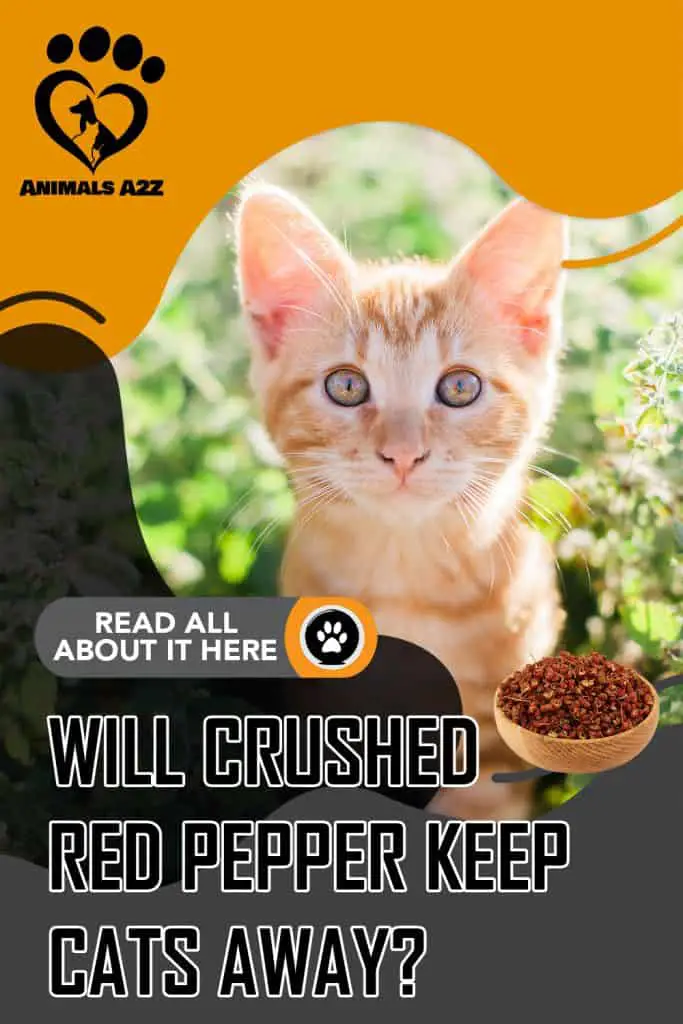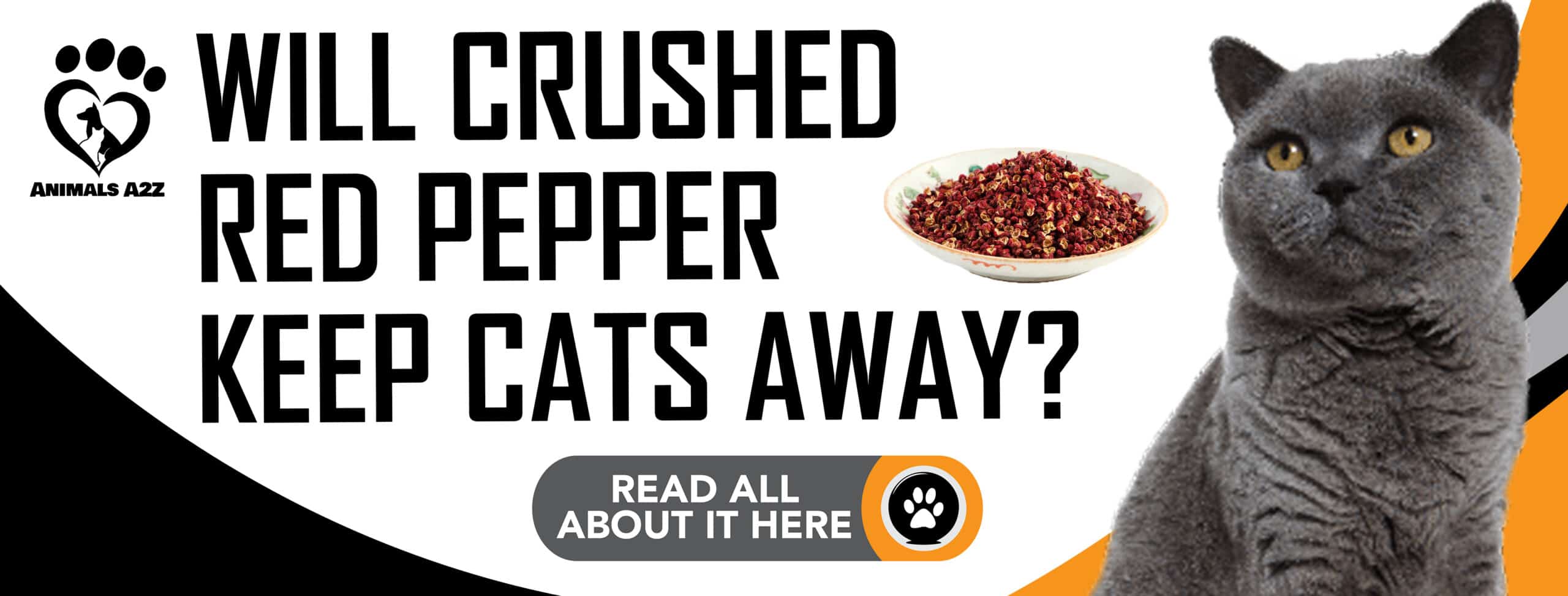Neighbors would not find your kitty cat entering their yard pleasurable. They may love animals, but they don’t always like cats in their garden and find things that they don’t want to see like cat poop or destroying plants and flowers. This upsets your neighbors. What do they do when they encounter this situation often?
Instead of contacting you to help them find ways to stop your cat from being a nuisance, they’ve found some ways to fix this. They may have used crushed red pepper as a solution to keep the fluffy felines out of their garden without hurting them. Blend pepper as temporary cat repellants may have been sprayed onto plants and made to taste awful to the pet.
Table of Contents
The Red Pepper
The red pepper is sufficient to keep cats out of the garden but, accordingly, irritates them. Keep in mind, however, that if they put pepper on the ground, tiny bits may get caught between the pads on the kitty paws as this may be painful to the cat.
To all those that use this, make a repellent spray better by combining crushed red pepper with water and placing it in a spray bottle. Then spray the garden with the mixture. It won’t harm the plants, but it might be enough to keep cats away from the spicy scent.
No wonder your cat would suddenly get quite ill with what appeared to be a bladder infection due to the red-black pepper dumped over the yard to deter the cat. Urination for the cat is so unpleasant it would just lie in the yard and cry. The cat would even continuously lick its back paws and chew its claws to get the pepper out while sneezing over.
Meanwhile, some cats prefer hot food that irritates their mouth. Many of these can eat foods that are both edible and non-edible, causing internal aggravation and pain. They love new tastes that are rich and tasty, especially food people enjoy. Spicy food is no exception because it has a very distinct scent that captures the attention of a feline. These foods are typically made from meat, which makes them attractive to cats.
Cats and Spicy food
Cats eating spicy foods are at risk of gastrointestinal and digestive problems, such as stomach upset, diarrhea, and vomiting. This occurs due to capsaicin found in spices such as cayenne pepper. The cat’s tongue is also unable to process the complex taste.
While cats can find too much spicy food dangerous, some felines still enjoy sampling it. This might be because cats like to imitate humans, or it might be some cats’ peculiarity. No matter why, feeding cats with spicy food should be discouraged.
If your cat has a preference for pepper, and you don’t mind sharing your meals, there is no harm, and as long as your cat shows no ill effects. Even so, use common sense. Hold exceedingly spicy food out of sight of the cat and make sure the peppery stuff is only provided as an occasional snack.
Common questions about red bell peppers keeping cats away
What are the other ways to keep cats away?
There are many ways to keep cats out of the yard without doing damage to the cat. One way to get rid of cats that piss at your house is to keep some ferret urine and spray on your property’s perimeter.
You can also put out other fragrances that keep cats away: spread fresh orange or lemon peels. Another way to create an outdoor cat repellent is to use moth or coffee grounds. Sprinkle in your yard or garden, and they will help cats avoid using your yard or garden as a litter box.
For pet owners, they make an outdoor litter box away from your garden by tilling the soil or putting sand in an out-of-the-way spot in your yard. Keep the area clean very often.
What plants contain substances which can be toxic to cats?
More than 700 of the common plants that we fill our homes and gardens with substances that can be highly toxic to cats. Some of which have fatal consequences. These could be the whole plant that can be poisonous or its bark, leaves, pollen, stem, or plant roots. Here are some of the houseplants that can be extremely harmful to your kitties and should be avoided.
Tiger lilies are considered to be the most poisonous plants for cats. The whole plant is toxic and may cause vomiting, exhaustion, and loss of appetite when ingested. If left untreated, the poisoning may cause fatal renal failure within 24 to 72 hours.
Poison ivy and other species of ivy can be highly toxic to your pet. If your cat comes into contact with poisonous ivy, there may be severe rashes that can become disgusting if left untreated. Likewise, mistletoes, chrysanthemums, weeping figs, azaleas, juniper shrubs, bulbs, and onions are some of the deadly plants for cats. So keep these out of sight of your cat.
What are the advantages of feeding bell peppers to cats?
Many of the vitamins, minerals, and amino acids in plant foods, such as bell peppers, fall into one of two categories. They are useless because the cats produce them on their own or present in a form that cat bodies cannot properly absorb. Bell peppers can do wonders for humans’ well-being, but your cats can’t get a whole lot out of it.
Feline’s digestive system usually doesn’t absorb the vitamins from peppers. However, if your cat enjoys it’s okay to feed bell peppers as an occasional treat. In reality, those will make your pet sick.
Conclusion
The spicy smell of a crushed red pepper is useful in keeping cats away from your home. Cats are drawn to the scent of red bell peppers, which affects their gastrointestinal and digestive tracts. On the contrary, there are several ways to keep cats away without causing considerable damage to your pet.


